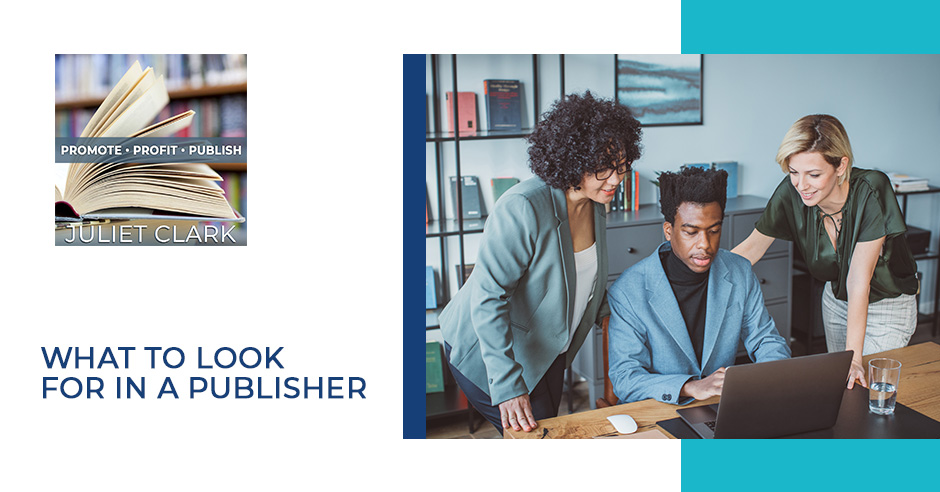
Your message can only go so far without the right publisher for you. But in a sea of publishing houses, how do you know which ones to trust and avoid disappointments? Today, gracing this episode is Bridgett McGowen. She is an award-winning international professional speaker, author, publisher, and the owner of Press 49. Bridgett reveals some of the biggest scams among publishers and what to look for before working with one. From overpromising and under-delivering to maintaining standards, she breaks it all down. As an author, be selective about the company you keep, especially with publishers. Tune in now to ensure that your message and story are in good hands.
—
Watch the episode here
Listen to the podcast here
What To Look For In A Publisher With Bridgett McGowen
Welcome, Bridgett. It’s great to have you on the show.
It’s great to be on the show. I am looking forward to our conversation.
I’m going to share Bridgett’s bio. It’s one line. She’s super awesome. I’m going to let her tell you why it’s only one line because she has a very valid point about what she’s doing here. Bridgett McGowen-Hawkins is an award-winning international professional speaker, author, publisher, and the Owner of Press49. Tell us. Why one line? You had a really good reason.
I’m so glad that you found it to be a good reason. Readers, I want you to think about the last time you attended any conference, a breakout session, or a keynote address, and the moderator, the facilitator, or whatever you want to call that person who introduced the speaker read this long bio or gave you this long intro. How much of that did you remember? How many of you were sitting there thinking, “What does the person have to say?”
You can go Google that person, which you likely did and that’s why you’re sitting in the session. You can go check that person out on LinkedIn. I don’t believe in bringing the goods right away. My bio is not the goods. I want you to read the conversation that Juliet and I have and then say, “I got to go check her out.” You can talk about how you’ve done this, have achieved this, and have won this. That’s lovely, but can you get the job done? That’s why I push all of that to the side. I want to give you what you came to get. That’s real content and value that you can take and use. We can talk about me later.
I love that. I was thinking back. In one of my very first episodes, and I’m not going to mention his name, I got a three-page bio. He worked with a PR agent. That’s how I met him. I was like, “What piece am I going to pull out of here?” It would be like, “I’m reading the bio. Thank you so much for stopping by. We’ve used all our time reading his bio.”
It’s like a book. That book has to immediately hook you. You don’t want the authors spending a lot of time going down tributaries, around the bend, and so on. You want to immediately get something out of it. That’s why the author’s bio is typically at the end of the book or in some different section. Whether it is fiction, nonfiction, business, or poetry, it doesn’t matter. They want to immediately give you something that’s going to grab you. What are we going to give our audience, that’s going to grab them? What do you have for me?
I met Bridgett on the scams that Ally B. put together. I loved what she had to say. She was so direct and to the point about what are those things in publishing that you have to watch out for. Like me, you’re a publisher. You know the things that people sell out there are crazy and they don’t help authors. Let’s start with, what is the biggest scam you see out there?
I don’t know that I could find the biggest one, but let me start out with some of the biggest ones. One of them, I wouldn’t call it a scam either. I know the audience is like, “I don’t know. Your credibility is dwindling here.” Here’s the deal. If you have a publisher who promises you X number of copies of your book that will sell, you want to stop and think twice. Look in the other direction or raise an eyebrow. It should give you pause. No one can guarantee you how many copies of your book will sell. That goes for any publisher or any author. I’m not talking about, “It’s only the hybrid presses or only the indie presses like Juliet and Bridgett from Superbrand and Press49.”
It’s only those where they cannot promise you certain numbers. No publisher is able to promise or guarantee you a certain number of your books or a certain number of copies of your book will sell. If they tell you this big flashy number, slow your roll, pump the brake, give it some time, and think about it. Speaking of time to think about it, if they’re not willing to give you that time, if they pressure you and say, “This offer is only good for 24 hours,” you want to pause for a minute, too.
No publisher can promise or guarantee you a certain number of your books will sell. Click To TweetI’m not saying reputable companies don’t have those clocks ticking. We all have those special deals or promotions that are through a certain period of time, but if they’re telling you, “You have to jump on this. The price quadruples in 48 hours,” be leery of that. There are a number of others, but those are two of the bigger ones.
I agree. I don’t know if you remember the olden days of digital marketing where you would do a webinar and then they had the countdown and the bonuses disappeared. That’s not how we sell books or book packages. A few years ago, which was during COVID, I was on 1 of those 2 or 3-day things where they have different guest speakers. I remember one of the people getting on, giving a presentation, and doing that whole bonus and bonus disappearing. All of us other speakers were texting each other going, “That’s so old-school and so not working these days.”
We know how serious that is. The undertaking of writing a book and publishing a book is not something that should be rushed. You want to take your time with it because you’ve put a lot of work into this. You want to tread lightly and carefully. Have we had instances where an author signs on with us and needs their book done fast? Yes. We’re in the middle of that. Some publishers may make that exception, but we’re still keeping a close eye on quality. While we’re moving efficiently, we’re also making sure that we’re putting out a product that both you and we at Press49 can be proud of.
We’ve done the same. We had a biography of the USC band leader. We had to get out with books in our hands in three weeks to sell on the tailgates at a USC-UCLA football game. It happens. Still, that’s different than somebody trying to close you and saying, “Today only.” What that tells me when somebody tries to do that is they’ve got a cashflow problem.
Not to be shady and suggest, “Shame on you for having cashflow problems,” or what have you, that’s business. Business is up now, down tomorrow, and a question mark on the third day. It is to say it makes you look a little desperate. Watch out for that.
What are other things to watch out for that you’ve seen? You’re like me. You’ve published several books. You really know what to look for out there. What are some other concerns that you’ve seen?
There are a number of things that I shared in that panel discussion with Ally and friends. There are areas such as service, leadership and excellence, standards, integrity, and professional development. You want to make sure that you’re working with a publisher that believes in service and in making sure they are client-focused. If you have a question, you will get an answer. If they don’t know the answer, they’ll find the answer for you. They’re there to make sure that this is a good experience for you.
I like to tell our clients, “You are the boss. You’re going to be taken care of.” You want a publisher that is committed to service. You want to know that you can put in contact with some of their clients. You’re trying to decide whether you want to work with them or not. Are they okay putting you in touch with some of their clients? You want to know what kind of support they’ll offer you after your book is published. Is this where they’re going to take your money publish and run or is it an actual relationship?
Look out for the service piece. When it comes to leadership and excellence, find out, “Are you going to do whatever I tell you to do because you said I’m the boss or are you going to make sure industry standards are in place? Are you going to make sure if someone looks at my book and someone looks at a book that’s published by 1 of the big 5 publishers they would not be able to tell the difference?”
Ask them, “Are you going to keep it real with me? Are you going to advise me on industry standards even before you sign on the dotted line?” This is where we talk about that 24-hour clock ticking or 48-hour clock ticking. Ask, “Before I sign on the dotted line, may I see a sample of your work?” If you want a physical copy, it can take more than 24 or 48 hours to get it to them. They can send you an e-copy of it, but you might want to see and feel the book and check out the texture of the pages. What pound of paper do they use? Have they done full-color books? What does that look like? That’s what I’m talking about when it comes to leadership and excellence.
With standards, do they maintain high standards? Do they work with every author or anyone who comes their way? You do not want that publisher. There are vanity presses. Let me be very clear. There’s nothing wrong with vanity presses, but they are the type of presses that will publish any and everyone. You want to be selective about the crowd you’re with.
Do you remember Mama telling you to be careful with the wood birds flocking together, feathers, and all that type of stuff? You know the cliché I’m looking for. You want to be selective about the company you keep as an author. Ask them, “Do you accept any author who comes along?” For vanity presses, that’s another story. They publish you. If you want to get published, you pay and they publish you. That’s the end of the story. Ask about that. Find out how they deal with plagiarism and how they stay on top of industry standards.
Be selective about the company you keep as an author. Click To TweetAsk them about integrity. That’s the next piece. Ask, “May I review the contract beforehand? May I have my attorney look at it?” I give people a couple of weeks, quite frankly, if they want. If they come back two weeks later and say, “I didn’t get around to it,” I’m like, “You can have another two weeks.” I like to stay on top of things so I’ll give that two-week window or whatever. I’ll give you all the time you want. If there are changes you want to make to your contract within reason that we can mutually agree upon, I do.”
With the integrity piece, find out how they handle issues if there is a problem. Ask them, “What do you do? How do you handle stuff? Is there an exit clause?’” Let’s say we get into this contract and we get to working together but things aren’t gelling for me. Is there a way for me to get out of the contract? I have that included in mind.
Also, look at inclusivity. You want to work with a publisher where when you look at their roster of authors, you’re able to see yourself somewhere amongst them and/or somewhere amongst the team members at the publishing company. You should be able to look in either of those places and see diversity in all shades, all sizes, and all ages. Look at their titles.
If they’re niche and they only publish a certain type of content, and there are publishers that do that, there’s nothing wrong with that. We only publish nonfiction. If you’re looking to do nonfiction, we publish business books and professional development books. Look and see what topics they have there. Finally, see whether they engage in professional development. Do they go to conferences? Do they network? Do they attend masterminds? You and I are both publishers. We spend time together getting ideas from other colleagues in the industry. How do you grow and how do you make sure you’re always in a position to give your authors the absolute best of you?
That is an important point. Another one, too, is asking where they publish and how they publish in a sense. I know we get a lot of calls from people who talk to Amazon white-label companies. That can be very limiting. You mentioned the quality. The paper quality is not as good. I hear all the time about the cover’s role. Those are things, too, that are very important. Do you use the big industry guys or do you use Joe Blow down the street? That’s another big thing as well.
You were a speaker before this. I want to talk a little bit about that, too, because for Breakthrough Author Magazine in 2024, our whole theme is to ditch the middleman strategies for bypassing the distributor fees. The distributors are taking so much that authors aren’t making a good profit. Can you speak to that a little bit? That’s how you started. I remember you told me the story about rushing and getting that book out for an event.
I still do not know how I did that in less than a month. I don’t read that much. On March 13th or 17th, somewhere around there, of 2019, I got the green light that I was accepted to present at a conference. I was asked if I had a book to sell in the bookstore where Oprah would also have her book because she was going to be presenting and did present at this conference of 13,000 or 14,000 people. I don’t know where it came from. I had never written and published a book before, but all of a sudden, this light bulb went off. I said, “I don’t have a book right now, but I will in time for that conference.”
It was mid-March 2019 that I finished the book with about 42,000 words. I published it on April 9th, 2019. That is less than a month after that conference reached out to me. Granted, I had been blogging for years on the topic that I was presenting, so I pulled the best of the best. Back to this distributor thing and how after the printer takes its cut, got a paper, binding glue, and so on, then the distributor is going to take a percentage. You’re left with whatever. Let’s be straight up here. If you work with a publishing company, that retains royalties where they have to take their cut.
In terms of getting around the distributor taking money, it’s hard to get around it. One of the only ways you can get around it is where you do what I did initially. That was I sold my books directly from my website or at those conferences that I did and still do attend. As a matter of fact, I got in from a conference. That is one of the best ways where you’re going to see your highest royalties when you are selling them yourself.

Working With A Publisher: Probably the best way you’re going to see your highest royalties is by selling your books yourself.
There’s always a downside. There’s always the other side of the coin. When you only sell your books on your website or you only sell them at the conferences you attend, out of the trunk of your car, or whatever, you are positioning yourself to be able to recoup all of the royalties. All you do is pay for the printing of the book. You buy authorized copies from be it Amazon Kindle Direct Publishing, KDP, buying them from IngramSpark, or whatever printer you use. Those tend to be the more popular ones.
You retain the profits from the sales. However, you’re limiting your reach. There may be people not in your neighborhood, not in your circle, not in your network, and not at those conferences you’re attending who want and need your message but they don’t know anything about it because it’s not on Amazon. We’re back to square one of the distributor is going to take a cut.
The other way that you talked about, too, is you being there, selling the book, signing, and getting to know that person. You have to review your priorities in that sense because those people with whom you build a relationship more than likely will purchase from you. That is the upside of doing that yourself, especially with nonfiction because a lot of times, you don’t recoup the money from book sales. You recoup it from what you sell next. It can be a big thing. You went to this event, got it done within a month, and then sold a pretty tremendous amount of copies, didn’t you?
The book sells out, but here’s the cool part. I had never thought about being an author. It makes no sense that I would not have thought about being an author considering I had been a professional speaker or have been one since 2001. The thing is the book went on to win an award the following year. It won a Best Indie Book award. That’s the one that it won. I’ve had other books. That’s why I’m trying to figure out which one am I talking about and which award did it win. It ends up selling out and ends up winning an award. It was the catalyst for me to launch the publishing company, Press49, later that year. It’s crazy.
It’s the same for me. I came from traditional publishing. When I wrote my first fiction novel, I encountered a self-publishing company and went, “This is horrendous.” It was one of those that you said to watch out for. You hand off the manuscript and you never hear from them again until you’re awful product is in your hands.
You gave them the manuscript. They take off, edit, type it, and everything. They weren’t communicating with you saying, “Here are the edits. Let’s do some reworking,” or whatever.
Nothing. I had it professionally edited. I used Stephen King’s first editor. It was a little shocking because he wasn’t someone to whom you sent the Word doc and they edit and you go through and accept. I had to print the whole novel and send it to him and he marked it up in red pen. Believe me, when you’re an author and you get that red pen back, you’re like, “I suck at this.”
I handed it off to them. This was the part that killed me. It was they gave me a bank of photos and said, “Choose three.” It was the worst cover you’d ever seen in your life. They’re one of the big guys. That was the whole reason I started mine. I thought, “I can do a better job than this.” The whole thing didn’t resonate. I could see coming from traditional publishing where they were marking up pieces along the way to get additional profit that, as a self-publishing company, they shouldn’t have been entitled to. It was an experience.
Wow. That’s all I can say. I’m thinking about Stephen King’s editor. It made me think of two words, old school. I used to teach. I don’t know if I shared that with you. I used to teach in the Texas A&M University system. I made it a point to never grade my students’ papers in red ink. This time, I’m telling my age. I’m telling off on myself. I also taught online for the University of Phoenix, so I wasn’t grading by hand. Before joining UOP, I was with the A&M system. Students were physically turning in papers. I would always make sure I bought this rainbow of colors of ink but never red. I would throw the red out because it’s so traumatic.
Before we sign off here, you and Ally B, I am having you guys back. You haven’t booked it yet. At the beginning of 2023, you guys have a book that is a must-read. I have to tell you guys up front. I was one of the people who read part of it and did one of the endorsements. I thought it was a good book. Tell us a little bit about that. Not the whole thing. We don’t want to give the whole thing away because we don’t want to leave Ally out of this conversation. But a little bit about what you guys are up to.
I love this book. Being a professional speaker and always talking about presentation skills, I’ve written books on that. I love those books, but I might like this one better. The title of it is Do Not Write a Book Until You Read This One. We lay out for you a lot of what we talked about in this conversation, like what to avoid, what to watch out for, and how to empower yourself because we don’t want to scare you.
The book empowers you to make the right choices about choosing your topic, what kind of content to put in your book, how to create a winning title, and what are the hallmarks of a great title, like what’s too long, what’s long enough, and so on and so forth. We lay out the different publishing routes. Should you go self-publish? Do you go indie? Do you go hybrid, vanity, or traditional? What’s the difference between them? Do you need an agent? We even talk about when marketing for your book starts and what’s the best marketing tool you could ever have.
This might be the best part. This is going to be worth the price of admission. We have a section in the book where we discuss how to make money off of your book by selling a single copy. Juliet alluded to it earlier and I wish I had it exactly as she put it. It was about not the sale of the book. It is the sale after the book. There’s a little tease for you in terms of what we talk about in that section
When I wrote that book back in 2019, I was like, “Maybe I’ll sell a few copies,” but I really wanted what came with being a published author. That was what was important. The book was cool. It’s in its second edition and is more fabulous than ever. It is about what comes from being a published author. All of that and more is in Do Not Write a Book Until You Read This One. Go to Press49.com. Pre-order your copy. You’re going to love it.
We’re going to have her and Ally B. together to go deep into that a little bit more because it is something you could do. From my standpoint, all of that’s important. Also, too, it is understanding that you need a book developer to help you through this journey. In the best books that come out, people use a book developer. They didn’t open up and start writing one day.
That’s where you get into the major mistakes with the book because we all make the same mistakes when we don’t use a developer. Besides sending them to your website, do you have anything else where people can find more about you than going to Press49? Where do they go to find out more about you and what you do?
Go to Press49 to learn all about our award-winning hybrid publishing company and how we can support you in achieving your dream of becoming a published author. Maybe you want to know all about Bridgett because that little shabby, raggedy introduction didn’t do me justice. That is no shade toward Juliet. She reached out and said, “Give me your bio,” and I wrote a one-sentence. I know she was like, “This woman is tripping,” so that is no shade towards Juliet. If you want to know all about me, please visit ConnectWithB.com. I’m more than just a publisher and a pretty face. There’s a lot more to the story. I’d love to connect with you on social media. All of my handles are there at ConnectWithB.com.
I love that. She is more than just a pretty face. That’s why I wanted more bio because she is a very interesting lady. Thank you so much.
Thank you. This was a lot of fun.
We will talk soon when we get her and Ally B. back.
Important Links
About Bridgett McGowen
 Bridgett McGowen-Hawkins is an award-winning international professional speaker, author, publisher, and the owner of Press 49.
Bridgett McGowen-Hawkins is an award-winning international professional speaker, author, publisher, and the owner of Press 49.
Love the show? Subscribe, rate, review, and share!
Join the Promote, Profit, Publish Community today:
- superbrandpublishing.com
- Promote, Profit, Publish on YouTube
- Follow Juliet on LinkedIn
- Take the Quiz!

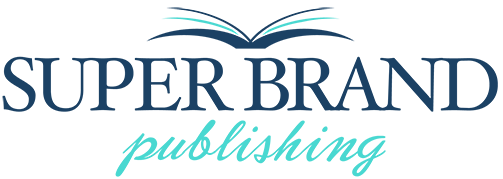


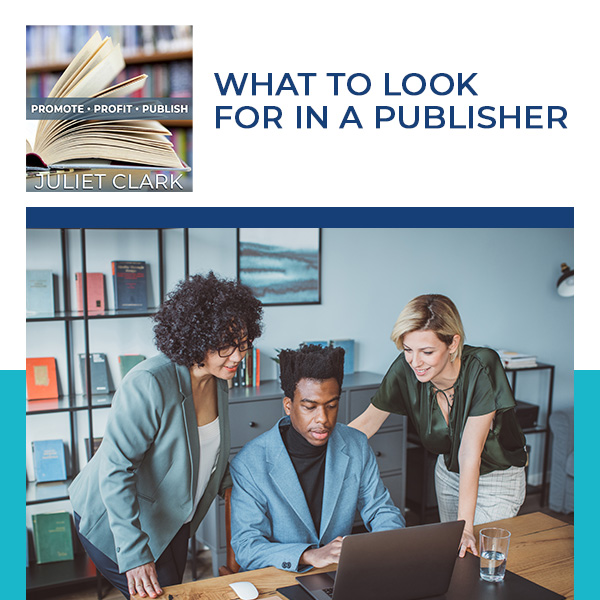
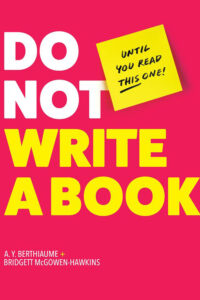
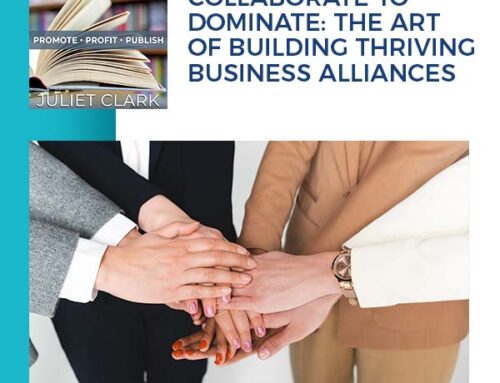
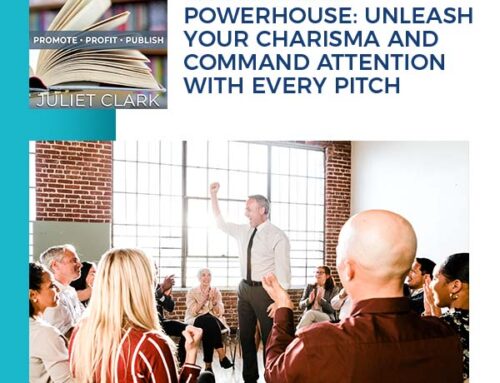
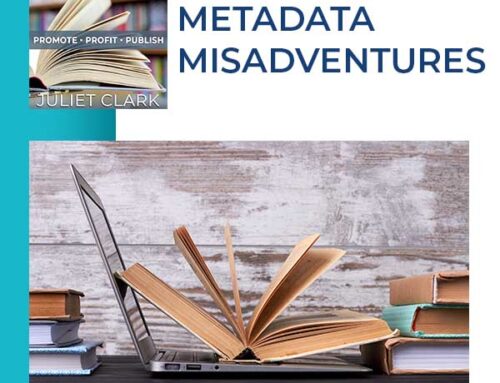
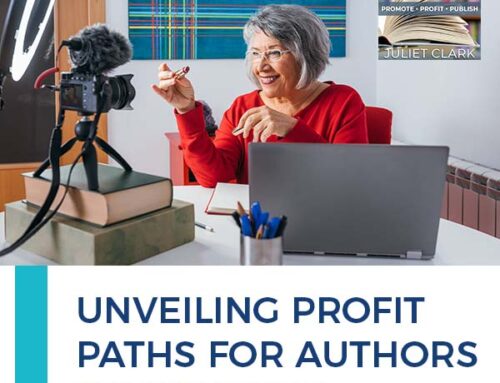
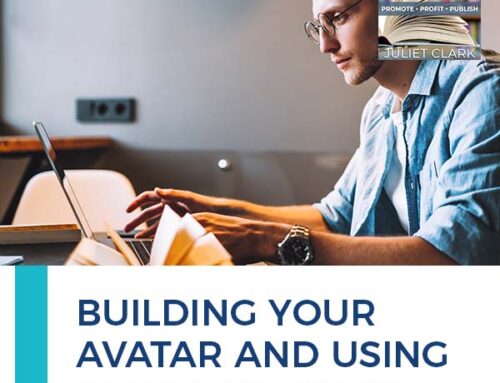
Leave A Comment